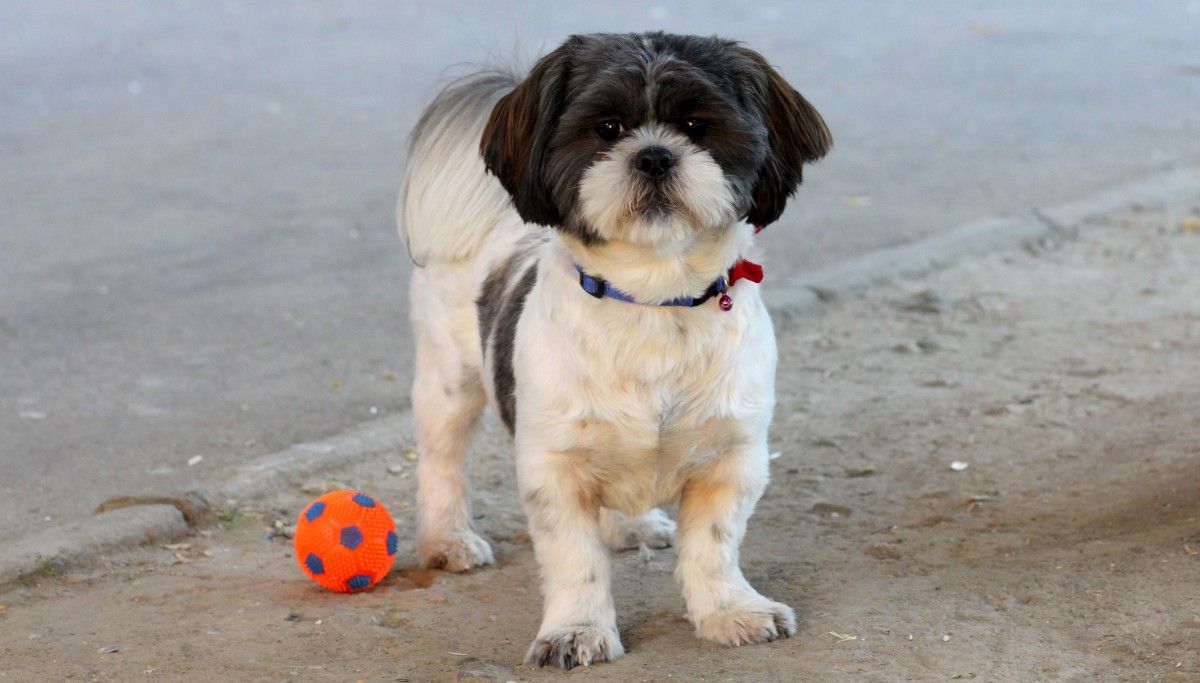Shih Tzus, with their friendly demeanor and adorable looks, are beloved companions around the world. To ensure these small dogs lead a comfortable and active life, it’s crucial to understand and maintain their joint health. This article delves into the essentials of Shih Tzu joint care, from understanding common issues to preventive strategies, and from recognizing signs of joint problems to exploring treatment options and lifestyle adjustments. With the right knowledge and care, you can keep your Shih Tzu agile and happy throughout their life.
Key Takeaways
- Shih Tzus are prone to certain joint issues such as hip dysplasia, which can be managed with proper care and regular veterinary check-ups.
- Optimal nutrition and weight management play a critical role in preventing joint problems and keeping your Shih Tzu’s joints healthy.
- Regular exercise balanced with adequate rest is essential for maintaining joint agility and preventing injury in Shih Tzus.
- Early detection of joint problems through behavioral observations and veterinary consultations is key to effective treatment and management.
- Lifestyle adjustments, including home environment modifications and regular grooming, can significantly contribute to the joint health of your Shih Tzu.
Understanding Shih Tzu Joint Health

The Basics of Canine Joint Structure
Understanding the structure of canine joints is essential for maintaining the health of your Shih Tzu. Joints connect bones and are pivotal in facilitating movement. They are complex structures composed of bones, cartilage, synovium, and ligaments. Proper joint function allows dogs to move freely and engage in activities without discomfort.
Joints also play a crucial role in absorbing the impact from heavy movements such as jumping and running. This absorption helps to protect the bones and muscles from damage, ensuring that your Shih Tzu can enjoy a playful and active lifestyle. It’s important to recognize that joint health can be compromised by conditions like hip dysplasia, a genetic issue where the hip joint does not form properly, leading to arthritis and pain.
Regular veterinary check-ups and being attentive to changes in your dog’s behavior or appearance are critical for early detection of joint issues. With proper care, Shih Tzus can lead happy, healthy lives.
Common Joint Issues in Shih Tzus
Shih Tzus, like many other breeds, are susceptible to certain joint issues that can affect their quality of life. Hip dysplasia is one of the most common genetic conditions in Shih Tzus, where the hip joint does not form properly, leading to arthritis and pain. This condition can manifest as lameness in the hind legs, and affected dogs may show reluctance or inability to use their limbs normally.
Another condition to be aware of is entropion, an eye-related issue where the eyelid rolls inward, causing irritation that can indirectly affect joint health due to decreased activity from discomfort. While not a joint issue itself, it’s important to consider overall health when addressing joint care.
Regular health screenings, including hip evaluations and thyroid function tests, are crucial for early detection and management of these conditions. Proactive care can help maintain your Shih Tzu’s agility and happiness.
Below is a list of common joint issues and recommended tests for Shih Tzus:
- Hip Dysplasia
- Recommended Test: Hip Evaluation (X-rays or other imaging tests)
- Entropion
- Recommended Test: Ophthalmologist Evaluation
- Hypothyroidism
- Recommended Test: Thyroid Function Test
The Role of Genetics in Joint Health
Genetics play a pivotal role in the joint health of Shih Tzus, with certain conditions being hereditary. Hip dysplasia is one such genetic condition where improper formation of the hip joint can lead to arthritis and pain. This condition, along with others like entropion, where the eyelid rolls inward, can significantly affect a Shih Tzu’s quality of life.
While not all joint issues can be predicted, understanding the genetic predispositions can help in early detection and management.
It’s important for potential and current Shih Tzu owners to be aware of these genetic risks and to consider them when planning for their pet’s health care. Regular screening, such as thyroid function tests and hip evaluations, are recommended, especially if the dog is used for breeding.
Here is a list of common genetic joint-related conditions in Shih Tzus:
- Hip Dysplasia
- Entropion
- Gastric Dilatation-Volvulus (Bloat)
- Hypothyroidism
Each of these conditions has its own set of symptoms and recommended tests, which should be discussed with a veterinarian to ensure the best care for your Shih Tzu.
Preventive Measures for Joint Care

Optimal Nutrition for Joint Support
Providing your Shih Tzu with the right nutrients is crucial for maintaining healthy joints. A balanced diet rich in vitamins and minerals supports overall joint health, ensuring your furry friend stays agile and happy. Certain nutrients play a pivotal role in maintaining the integrity of cartilage and the lubrication of joints.
- Vitamin C is essential for immunity and joint health, as well as skin and coat maintenance.
- Magnesium aids in cellular energy production and nutrient metabolism.
- Manganese is important for bone and joint health, as well as metabolic function.
- Potassium, an electrolyte, helps with hydration and cardiac function.
- Vitamin B6 is vital for nervous system function, metabolic health, bone and joint health, and red blood cell production.
It’s important to note that while a nutritious diet can help support joint health, it is not a cure for genetic predispositions or existing joint conditions. Regular check-ups with a veterinarian can help detect and manage any potential issues early on.
In addition to vitamins and minerals, supplements such as glucosamine and chondroitin can be beneficial. These supplements are often recommended to support joint health and can be found in various dog foods formulated for joint care. Always consult with your vet before adding supplements to your Shih Tzu’s diet to ensure they are necessary and given in the correct dosage.
The Importance of Weight Management
Maintaining a healthy weight is crucial for the joint health of Shih Tzus. Excess weight puts additional stress on joints, which can exacerbate existing conditions or lead to the development of new issues. Regular monitoring of your Shih Tzu’s weight is essential to ensure they remain within a healthy range.
Reducing carbohydrate intake is a crucial step in a weight loss plan for Shih Tzus. Excess carbohydrates can lead to weight gain, particularly in less active dogs. Here are some practical steps to manage your Shih Tzu’s weight:
- Monitor your dog’s daily food intake.
- Provide a balanced diet with high-quality protein.
- Limit treats and avoid human food.
- Ensure regular exercise tailored to your dog’s needs.
Weight management is not just about diet; it’s a lifestyle change that involves regular physical activity and careful monitoring of your dog’s eating habits.
By keeping your Shih Tzu at an optimal weight, you’re not only improving their joint health but also their overall well-being and quality of life.
Exercise: Balancing Activity and Rest
For Shih Tzus, maintaining joint health through exercise is a delicate balance. Moderate daily exercise is crucial for keeping their joints supple and strong, but it’s important not to overdo it. Short walks and play sessions can provide the right amount of activity without putting undue stress on their joints.
- Start with a warm-up to prepare their muscles and joints.
- Engage in low-impact activities like leisurely walks or gentle play.
- Avoid high-impact exercises such as jumping or running on hard surfaces.
- Allow for rest periods during play to prevent overexertion.
- Cool down with a short walk or calm activity to ease their body into rest.
Consistency in exercise routines helps prevent sudden strain on your Shih Tzu’s joints, which can lead to injury or exacerbate existing conditions. It’s also essential to monitor your pup’s response to exercise and adjust accordingly, ensuring they remain agile and happy without discomfort.
Recognizing Signs of Joint Problems

Behavioral Changes and Mobility Issues
Shih Tzus are generally known for their lively and affectionate nature. However, when they start to exhibit behavioral changes or mobility issues, it could be a sign of underlying joint problems. A decrease in activity levels, reluctance to climb stairs, or hesitation to jump onto their favorite couch are telltale signs that your Shih Tzu may be experiencing discomfort.
Owners should be vigilant for any signs of pain or lameness, as these can indicate the onset of joint conditions such as hip dysplasia, which, while less common in Shih Tzus, can still affect them and lead to arthritis. Early detection is crucial for managing these conditions effectively.
It’s essential to monitor your Shih Tzu’s behavior and mobility closely, as changes can be subtle but significant indicators of their joint health.
If you notice any of these changes, it’s important to keep a detailed record to share with your veterinarian. This can help in diagnosing the issue more accurately and swiftly:
When to Consult Your Veterinarian
It’s essential to be vigilant about your Shih Tzu’s health and well-being. Regular veterinary check-ups are a cornerstone of preventative care, but there are times when you may need to consult your veterinarian outside of the routine schedule. If you notice any sudden or progressive changes in your dog’s behavior, mobility, or physical condition, it’s time to seek professional advice.
- Sudden reluctance to climb stairs or jump
- Persistent limping or favoring one leg
- Swelling around the joints
- Excessive licking of a joint area
These symptoms could indicate joint issues or other health problems that require immediate attention. Early intervention can make a significant difference in your dog’s quality of life.
Remember, acting promptly on the signs of discomfort or pain in your Shih Tzu can prevent more severe health issues from developing. It’s better to err on the side of caution and have your veterinarian assess any concerns you may have.
Diagnostic Tests for Joint Health
When it comes to maintaining the joint health of your Shih Tzu, early detection of potential issues is key. Diagnostic tests play a crucial role in identifying joint problems before they become more severe. A variety of tests are available to assess the health of your pup’s joints:
- Thyroid Function Test: Regular screening for thyroid levels, especially if symptoms of hypothyroidism are present.
- Hip Evaluation: X-rays or other imaging tests to check for hip dysplasia, a condition that can lead to arthritis and pain.
It’s essential to conduct these tests as part of a regular health check-up, particularly for dogs that are used for breeding or have shown signs of joint discomfort.
Remember, the sooner a joint issue is diagnosed, the more effectively it can be managed. Consult with your veterinarian to determine the most appropriate tests for your Shih Tzu, and ensure that they are part of your dog’s routine health care plan.
Treatment Options for Joint Issues

Medications and Supplements
When addressing joint issues in Shih Tzus, a combination of medications and supplements can be integral to managing pain and promoting joint health. Nonsteroidal anti-inflammatory drugs (NSAIDs) are commonly prescribed to reduce inflammation and alleviate discomfort. However, long-term use requires careful monitoring due to potential side effects.
Supplements such as glucosamine and chondroitin are widely recommended to support joint function and repair. Omega-3 fatty acids, often sourced from fish oil, can also help reduce joint inflammation. Here’s a brief list of supplements beneficial for joint health:
- Glucosamine sulfate
- Chondroitin sulfate
- Omega-3 fatty acids (EPA & DHA)
- Methylsulfonylmethane (MSM)
- Green-lipped mussel extract
It’s essential to consult with a veterinarian before starting any new medication or supplement regimen to ensure it’s appropriate for your Shih Tzu’s specific health needs.
While medications and supplements can provide relief, they should be part of a comprehensive approach that includes diet, exercise, and regular veterinary care. Always discuss the risks and benefits of any treatment with your vet to tailor the best plan for your furry friend.
Physical Therapy and Rehabilitation
Physical therapy and rehabilitation are essential components in managing joint issues in Shih Tzus. A tailored program can significantly improve mobility and reduce pain. Rehabilitation techniques often include exercises that strengthen the muscles around the joints, improving stability and function.
Therapists may also use modalities such as hydrotherapy, which utilizes the buoyancy of water to facilitate pain-free movement. This can be particularly beneficial for Shih Tzus, as it allows them to exercise without putting undue stress on their joints.
Consistency in physical therapy sessions is key to achieving the best outcomes for your Shih Tzu’s joint health.
It’s important to work with a veterinarian or a certified canine rehabilitation therapist to develop a program that’s right for your dog. They can guide you through the process and help monitor your dog’s progress.
Surgical Interventions: When Necessary
In some cases, despite all preventive measures and non-invasive treatments, surgical intervention may be the only option to alleviate severe joint issues in Shih Tzus. This is particularly true for conditions like hip dysplasia, which can lead to arthritis and significant pain if not addressed. Surgery can range from minimally invasive procedures to more complex operations such as total hip replacements.
Surgical options should be considered when the quality of life is significantly affected, and other treatments have not yielded sufficient results. It’s crucial to weigh the benefits against potential risks and recovery time.
The decision to proceed with surgery should involve a thorough discussion with your veterinarian, considering the specific needs of your Shih Tzu. Here’s a simplified overview of the surgical process:
- Pre-surgical assessment and diagnostics
- Choosing the appropriate surgical technique
- Post-operative care and pain management
- Rehabilitation and follow-up evaluations
Lifestyle Adjustments for Joint Health Maintenance

Home Environment Modifications
Creating a comfortable and safe home environment is crucial for maintaining your Shih Tzu’s joint health, especially as they age. Modifications to your living space can significantly reduce the strain on your pup’s joints and enhance their overall well-being. Consider the following adjustments:
- Ramps or small stairs to access furniture or vehicles, preventing the need for jumping
- Non-slip mats or rugs on slippery floors to provide traction and prevent falls
- Elevated food and water bowls to reduce neck and back strain
- Orthopedic beds to support joints and improve sleep quality
By making these simple changes, you can create a supportive environment that caters to your Shih Tzu’s needs, helping to prevent joint pain and improve mobility.
Remember, as your Shih Tzu gets older, their ability to navigate around the house can become more challenging. Paying attention to their movement and comfort can alert you to potential joint issues early on, allowing for timely intervention.
Regular Grooming and Its Impact on Joints
Regular grooming goes beyond keeping your Shih Tzu looking its best; it plays a crucial role in maintaining joint health. Frequent brushing can help identify any early signs of joint discomfort or swelling by allowing you to notice subtle changes in your dog’s skin or coat that may indicate underlying issues.
Consistent grooming sessions provide an opportunity for you to check for any lumps, bumps, or tender areas around the joints that could signal the onset of a joint problem.
Additionally, grooming can prevent mats and tangles that, if left unattended, can lead to skin infections or discomfort that may affect your dog’s mobility. Keeping nails trimmed is also essential as overly long nails can cause an irregular gait, putting unnecessary stress on the joints.
- Daily brushing to maintain coat health and spot potential issues
- Regular nail trims to ensure proper gait
- Checking for signs of discomfort during grooming sessions
- Professional grooming advice for maintaining joint health
Socialization and Mental Health Contributions
The well-being of a Shih Tzu is not solely dependent on physical health; mental health plays an equally important role. Socialization is a key factor in maintaining a happy and mentally stable dog. Dogs are inherently social creatures, and Shih Tzus are no exception. They benefit greatly from regular interaction with humans and other dogs. This can prevent behavioral issues and promote a more balanced temperament.
Engaging your Shih Tzu in social activities can range from playdates to participating in doggy daycare or playgroups. These interactions contribute to their emotional health and can even have a positive impact on their joint health by encouraging gentle, regular exercise.
It’s essential to recognize that a well-socialized dog is typically more adaptable and less prone to stress-related disorders, which can indirectly affect joint health.
To ensure your Shih Tzu is receiving adequate socialization, consider the following steps:
- Introduce your Shih Tzu to new experiences and environments gradually.
- Encourage play with other friendly dogs in safe, controlled settings.
- Attend local dog events or join a Shih Tzu club to meet other owners and pets.
- Provide opportunities for your dog to learn and practice good behavior around people and other animals.
Conclusion
In conclusion, maintaining the joint health of your Shih Tzu is essential for their overall well-being and happiness. Regular exercise tailored to their needs, proper nutrition, and consistent grooming can help prevent common health issues like hip dysplasia and entropion. It’s important to stay vigilant for signs of discomfort or changes in mobility, as early detection can make a significant difference in management and treatment. Always consult with your veterinarian for personalized care and consider genetic testing for predisposed conditions. By taking proactive steps and providing loving care, you can ensure your Shih Tzu remains agile and joyful throughout their life.
Frequently Asked Questions
What are common joint issues in Shih Tzus?
Shih Tzus can be prone to joint issues such as hip dysplasia, which is a genetic condition where the hip joint does not form properly, leading to arthritis and pain.
How important is nutrition for my Shih Tzu’s joint health?
Optimal nutrition is crucial for joint support. A balanced diet with the right amount of nutrients can help maintain healthy joints and prevent issues.
Why is weight management important for my Shih Tzu’s joints?
Maintaining an ideal weight for your Shih Tzu is essential to reduce the stress on their joints, which can prevent joint issues and alleviate symptoms if they already exist.
How can I tell if my Shih Tzu is having joint problems?
Signs of joint problems include behavioral changes, difficulty in moving, limping, or reluctance to jump or climb stairs. If you notice any of these signs, consult your veterinarian.
What treatment options are available for Shih Tzus with joint issues?
Treatment options range from medications and supplements to physical therapy and, in severe cases, surgical interventions. Your vet can recommend the best course of action.
Are there any lifestyle adjustments I can make to help my Shih Tzu with joint problems?
Yes, you can make home environment modifications, ensure regular grooming to avoid extra strain on joints, and provide socialization and mental stimulation for overall well-being.




